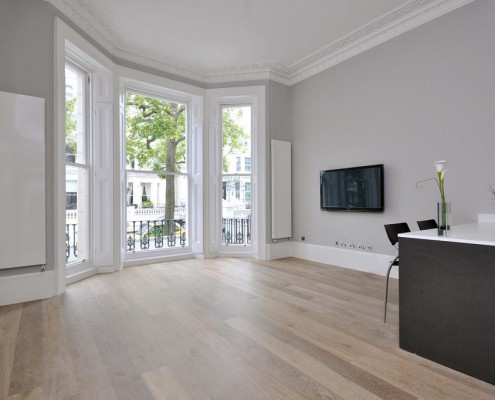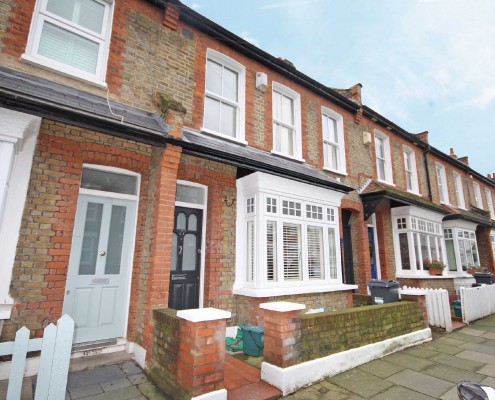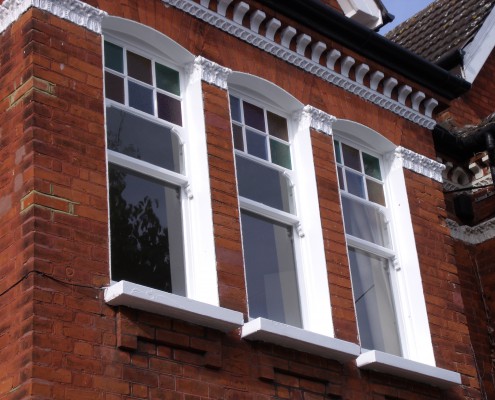Timber Windows
It is very important that all new timber windows meet certain standards of insulation or thermal performance.
These values are specific and insure that you are getting a product that meets a minimum set of energy efficiency standards. It is the timber windows manufacturers and the fitters joint responsibility to ensure your new windows meet or exceed these standards that have been set by the Government.
If you choose to use a sash window company that is not able to self certify then this is not nesersarily wrong but it will mean that you, as director of the works, will be taking on the sole responsibility to ensure the work meets the required values etc’
This could be quite difficult if you are not “in the trade” so to speak.
Basically in layman’s terms any replacement windows must ventilate your home the same as the old ones. It is best if they provide improved ventilation by use of trickle vents, however, as long as ventilation stays the same, it should be fine.
The glazed area should let in plenty of daylight. It must be an improvement or at least the same as the original installation.
Safety is an important issue with the new rules!
No matter what kind of glass is used in past timber windows, safety glass must be employed in certain situations. For instance, any glass that can be reached or contacted eight hundred millimetres from the floor has to be safety glass. This insures that you, your family, or visitors, are less likely to become injured from broken glass. For doors, the minimum is 1500 millimetres.
UK building regulations regarding timber window replacement also take emergency escape very seriously.
If your home currently has windows that provide an emergency escape, you cannot replace them with standard glass products. This rule is meant to save lives in the event of an emergency such as fires. Your windows can be made from wood or metal. UPVC is also acceptable. However, all products must meet minimum thermal performance standards.
We would always advise on wooden windows, but then again we may be a little bias! jokes aside, timber is most definitely best for longevity and it does not conduct heat/cold at anywhere near the amount that metal frames will.
Timber windows are also far better for the environment as trees are a natural product, cutting them down and replacing them actually helps the planet due to the natural process of trees effectively breathing in CO2 and exhaling pure oxygen! UPVC on the other hand is an oil based product and, simply put, just uses up yet more of our dwindling global resources. I dread to think of how much CO2 is pumped out each year manufacturing UPVC windows!
Building regulation can be rather complex even at the best of times.
Many of the calls we receive are from frustrated members of the public, seeking our expert advice due to previous use of companies that are not able to provide certificates of compliance on completion. We have decided to make the simplified information page below to help the average homeowner understand the basics before selecting which company to use to fit their new windows.
We hope it helps in making what we feel is a very important decision.
Understanding the Current Building Regulations Regarding Window Replacement in the UK
UK building regulations regarding window replacement were updated in 2003.
It is very important for the homeowner to understand these changes as it could effect you when you come to sell the property on.
If you do not have a certificate of compliance or building control do not sign the work off after it is completed, as then you could find yourself with a problem when you sell the property.
Below is a summary of some of the things you need to know about new and past regulations.
Before you install new windows in your home, you may need to have approval, especially if you live in a conservation area or if your building is listed. You will need to apply for a permit from building control if you plan on fitting a window in a place that previously did not have one there historically.
In most cases it would be advised to use a certified contractor for the job. The contractor can be certified by either CERTASS or FENSA.
FENSA stands for Fenestration Self Assessment Scheme. The GGF or Glass and Glazing Federation along with other bodies have set up FENSA to insure compliance of building codes for the installation of windows. CERTASS is similar to FENSA and insures that rules and regulations are strictly adhered to. A contractor who is CERTASS certified will offer a guarantee that is backed by insurance and will comply with all rules and ethics in the industry.
Although it is not the law that installers must be certified to fit new windows, if they are not then the homeowner will need to ensure that building control sign the work off, preferably before you pay the contractor their final payment!
CERTASS stands for certification and assessment.
For more information or to request a free quotation for window replacement please call us on 0800 689 9191
We ONLY use fully qualified surveyors NOT sales people. As a result of this long standing policy there are no commissions involved, this not only keeps our prices low but also guarantees that none of our products are miss sold and you will only ever get straight forward honest advice from a trusted and independent surveyor!










